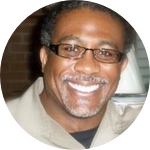About This Project
Given the growing ubiquity of media technology and ongoing state of social and political unrest, activism among college students has changed in recent years. Yet, little is known with regard to exactly how. In partnership with the Activist Millennials Project, this study seeks to understand the role of activist new media in contemporary student activism and social just work in college. Key findings from this study will empower college students engaged in similar work with effective strategies and tactics of digitally-enabled social change.Ask the Scientists
Join The DiscussionWhat is the context of this research?
Goals
Primarily, this study desires to deepen understanding and produce new knowledge regarding the activist experience of contemporary college students, with particular regard to the use of new media in social movement organizations. Secondly, this study seeks to assist the aims and purposes of colleges & universities to develop civically-minded, civically engaged students who live in a mediated world. Most importantly, however, this study hopes to provide insights useful to student activists themselves, helping improve their work within more expansive, mediated postsecondary contexts than those experienced by prior to the digital revolution.
Research Questions
This research project is interested in several broad research questions:
1. What is the role of alternative and activist new media in contemporary student activism in college?
2. How is the contemporary student activist experience mediated through the use of new media technologies?
3. How do alternative and activist new media create compelling accounts of social events related to organizing and mobilizing (e.g., Zimmerman trial and verdict)?
+ New media is defined as information and communication technologies and their social contexts, which include a combination of material artifacts (e.g., tweets, Facebook posts, Youtube videos), people’s practices (e.g., live-tweeting experiences as they happen), and social and organizational arrangements (i.e., interpersonal social networks) involved in the process of human communication.
++ Alternative and activist new media refers to new media employing or modifying the communication artifacts, practices, and social arrangements of new information and communication technologies to challenge or alter dominant, expected, or accepted ways of doing society, culture, and politics.
What is the significance of this project?
Despite the ongoing work to reconcile our nation’s discriminatory past, oppressive systems continue to intersect to define the unique experiences of America’s marginalized citizens (i.e., LGTBQ, women, low-income, mentally & physically impaired, and people of color). For this reason, much work remains toward the task of making our world more just. As has often been the case in American history, transformative change has long been the work of a youthful generation, eager to have their voices heard; today is no different. In the wake of landmark civil rights decisions by the Supreme Court of the United States (i.e., affirmative action, marriage equality, and voting rights), millennials are leading the way to make greater reforms to policy affecting their lives and the lives of others. In Arizona, millennials are fighting to stop the deportation and separation of families and the killing of people in search for a better life crossing the US-Mexico border. In California, DREAMERS fight for citizenship for themselves and their families as undocumented members in search of realizing the “American dream.” In Florida, the Dream Defenders occupied the Florida Capitol to reform discriminatory Stand Your Ground laws and disrupt the school-to-prison pipeline.
In each case, and many others, Activist Millennials are affecting change. However, how does such change take place? In what ways are millennials engaging in activism? What role does new media and technology play in their activist experiences. These questions remain largely without answers and need serious empirical investigation.
Our ethnographic research study attempts to begin addressing these questions with rich, textured findings from analyzing qualitative social media data and observing and interviewing Activist Millennials engaged in social movement organizations. This study is important for several reasons including, but not limited to, the following:
1. Very little empirical research has been done on contemporary (post-2000) student activism in college;
2. Of the recent research produced, none has examined student activism considering the mediated lives of millennial college students;
3. Research on activism in college has yet to examine the role of new media (i.e., social media, web-based applications, and mobile technologies).
What are the goals of the project?
All funds will be used to support the completion of data collection, the design & publication of findings reports, and the production of a film documenting the research process and study findings. However, I certainly realize there may be some questions about the specifics. Here are a few details to help provide greater clarity.
Interviews (Transcripts)
Field interviews will be conducted with local activists, organizational staff, and chapter leaders to, in part, provide insight to the aforementioned research questions. For example, to understand how activists experience their work through the use of technology, I will be asking participants to describe their personal use of social media applications (i.e. Twitter) during recruitment meetings, marches and protests, and mobilizing participants for on-the-ground action. This example reflects a more formal, semi-structured interview session. In ethnographic work, however, less-formal, unstructured interviews take place frequently based on the context of an observation(s). These interviews could span only a couple questions to many and various based on the responses provided by a participant. In these instances, questions related to recounting a series of events under observation may be used to gain clarity about what has happened.
Interviews will be recorded whenever possible. As such, transcripts of the interview will be made for subsequent analysis (systematic coding, thematic grouping, etc.). In most cases, I, the principal investigator will transcribe the interviews personally. However, due to the breadth of interviews conducted over the term of the study, some interviews will be professionally transcribed to ensure timeliness of completing the study.
Travel & Lodging
A large portion of the budget supports travel and residence during the course of the study. Here's why:
- Six sites have been identified in partnership with a Florida-based social movement organization of Black and Brown youth, the Dream Defenders.
- Each of these sites serves as a field office for the Dream Defenders organization, which enable statewide organizing and mobilizing for issues affecting Florida residents at-large.
- Each field site also has a local orientation to issues most pressing to the residents within their respective metropolitan area.
Budget
Several aspects of this project are in need of financing for the duration of the study. A small portion is needed for a 2-year team subscription (2 users) to an online software program, Deedose, for analysis of the data collected. Additional costs for interview transcriptions and field supplies are also covered by your support. Included in our set of the deliverables are several reports of findings, which need to be designed and in some cases printed and mailed to various campus offices of civic & community engagement. Lastly, a small stipend to aid me, a full-time graduate student and the principle investigator of the study, is also included. In all, the aforementioned is roughly 25% of total costs.
Of the remain costs, 50% of your support will go to travel & lodging at the respective field sites, of which there are six, during the 12-month period participant observations and interviews study. The last 25% of the budget will support the production of a visual ethnography, a documentary-like film showcasing the research process and study findings. Although nontraditional in the dissemination of research findings, the film, which will be accessible online, can greatly increase the accessibility of the work beyond academic audiences, particularly to undergraduate students engaged in college activism and social justice work.
Endorsed by
Meet the Team
Team Bio
Charles H.F. Davis III is a PhD Candidate at the Center for the Study of Higher Education at The University of Arizona. His research interests include activism, social justice education, and civic engagement in college, intersecting systems of oppression in campus and classroom settings, and the use of ethnographic and digital methods to investigate social and cultural phenomena in postsecondary contexts. His work has appeared in peer-reviewed journals, edited volumes, and been presented at the Association for the Study of Higher Education and American Educational Researchers Association annual conferences. He also serves as the executive director and principal investigator of the Activist Millennials Project, an organization for which parts of this study will be completed.More information about Charles and his work and interests can be found on his homepage hfdavis.com. You may also download his current CV.
Charles H.F. Davis I I I
Charles H.F. Davis III
PhD Candidate
Charles H.F. Davis III is a PhD Candidate at the Center for the Study of Higher Education at The University of Arizona. His research interests include activism, social justice education, and civic engagement in college, intersecting systems of oppression in campus and classroom settings, and the use of ethnographic and digital methods to investigate social and cultural phenomena in postsecondary contexts. His work has appeared in peer-reviewed journals, edited volumes, and presented at the Association for the Study of Higher Education and American Educational Researchers Association annual conferences.
Charles is currently working on his dissertation, Activist Millennials, which investigates the role of alternative & activist new media in contemporary student activism among Black and Latino undergraduates in the south.
Project Backers
- 28Backers
- 101%Funded
- $10,175Total Donations
- $363.39Average Donation

